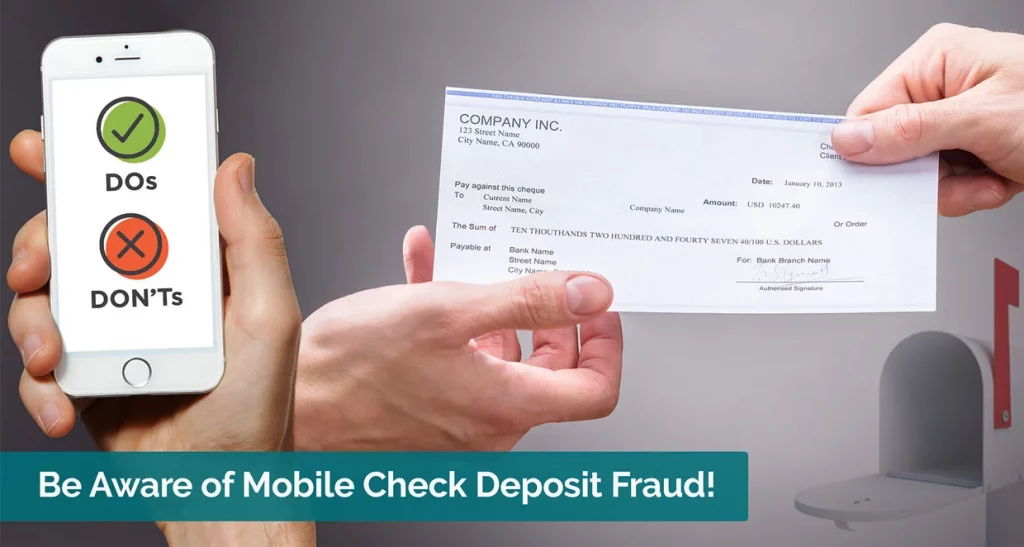Be Aware of Mobile Check Deposit Fraud!

Published: August 23, 2018
Be Aware of Mobile Check Deposit Fraud!
Mobile check deposit has fast become one the most convenient ways to deposit a check. Simply snap a photo of the front and back of the check and deliver the image through the mobile check app. The check is deposited without having to visit a branch or ATM.
But we also want you to be well informed about the potential for fraud with mobile check deposit. Fraudsters are devising new check scams while posing as prospective employers or lenders.
How the Scam Works
Fraudsters contact their victims through email or social media posing as a potential employer or lender. This contact may also be done through posting a job advertisement through an online site such as Craigslist. The fraudster will oftentimes provide the victim with an opportunity to earn quick money by depositing a check to your account or by asking for help in moving money from overseas. The fraudster will further request your bank account information and may even ask for your online or mobile banking login and password.
The fraudster uses the information to deposit a fake check. Once the deposit has been made, the scammer will request funds to be immediately transferred back to them via money order, person to person transfer, wire transfer, reloadable cards or even gift cards. After funds have been sent to the scammer, the check or checks that were deposited will be returned and the funds will be removed from the victim’s account, causing a loss to the victim.
Protect Yourself
Avoid falling prey to these scams by following these few simple steps:
- Never give out personal information to strangers. This includes your debit card number, PIN, bank account number, and any online or mobile banking login information.
- If you are offered money in exchange for your personal information, it’s likely a scam. Don’t proceed. Scammers could leave you owing thousands.
- Check your online bank statements regularly. If you see something unfamiliar, call your bank or credit union immediately.
- If you apply for a work-from-home job by email or online and the first thing they do is send you a check to cash then request you to return some or all of the money to them, it’s most likely a scam.
If You Suspect Fraud
If you suspect a check is fraudulent, don’t deposit it. Remember, if the offer seems too good to be true, it probably is. If you believe you have been the victim of a fraudster, contact your local police department immediately and notify your financial institution as soon as possible. They can place additional safeguards on your account.






